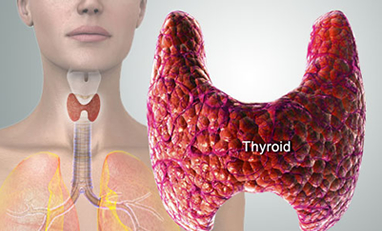
by Les Cole | Nov 8, 2020 | Articles, Healthy Eating, Live Well, Metabolic Syndrome, Metabolic Syndrome, Metabolism, Nutrition, Overweight, Weight Loss
By Les Cole, MD, St. Petersburg Health & Wellness How would you like to finally lose weight this year and keep it off? Skeptical? Understandable! You’ve probably dieted (no matter the diet) and exercised (no matter the exercise) and wound up hitting a plateau that...

by Les Cole | Sep 20, 2020 | Articles, cholesterol, Depression, Fatigue, Hypothyroid, memory, Thyroid, Weight Loss
(ATP) Active Thyroid Hormone = T3 by Les Cole, MD, St. Petersburg Health & Wellness Are You Depressed? Anxious? Panic Attacks? Depression is a major symptom of hypothyroidism and many of the symptoms of depression are the same as hypothyroid symptoms. And when...

by Les Cole | Jun 8, 2020 | Aging, Anti-Aging, Articles, Bio-Identical Hormone, Hormones, Weight Loss
Natural Hormone Replacement & Peptides By Les Cole, MD & Kathie Gonzales, ARNP-BC Hormone balance is of critical importance in how we feel, affecting our mood, sleep, energy & sex drive, natural Hormone Replacement Therapy (HRT) is an individualized...

by Les Cole | Aug 30, 2014 | Anti-Aging, Anxiety, Asthma, Atherosclerosis, Autoimmune, Bio-Identical Hormone, Bioidentical Hormones, Blood Pressure, Cancer, Chronic Fatigue, Depression, Diabetes, Dyslipidemia (Cholesterol, Eczema, Endothelial Dysfunction (ED), Erectile Dysfunction (ED), Fatigue, Female, Fibromyalgia, Functional Medicine, Heart Disease, Hormones, Hypothyroid, Insulin Resistance, Lifestyle Medicine, Male, Metabolic Syndrome, Metabolic Syndrome, Metabolism, Obesity, Overweight, Pain, PMS, Pre-Diabetes, Sex, Skin Conditions, Thyroid
Are You Fatigued? Do You Have Low energy? Your thyroid hormone, T3 (the active thyroid hormone), has many functions. One of these is to increase the number of mitochondria (power plants) in your cells. Your mitochondria are intracellular organelles that produce ATP...

by Les Cole | Aug 2, 2014 | Natural Medicine, Thyroid
Hyperthyroidism occurs as a result of too much thyroid hormone production. It is much less common than Hypothyroidism which occurs 5 times more often. The symptoms listed below are the most common for hyperthyroidism. These may also occur if you are being treated with...






